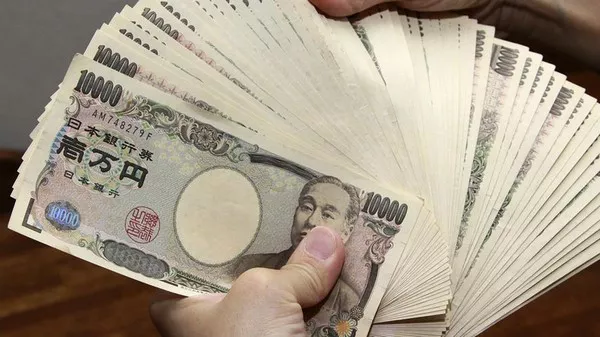In the world of global finance and foreign exchange (forex) trading, understanding the concept of valid currencies is essential for traders, investors, and businesses that interact with international markets. The Japanese currency is one of the most widely traded currencies in the world, with significant implications for global financial markets, particularly in the Asia-Pacific region. This article will explain what constitutes a valid Japanese currency, the history and significance of the yen, the role it plays in global trade, and its influence on forex markets. We will also explore the features that make the yen a valid and reliable currency, its central bank’s policies, and how it impacts international trading strategies.
Introduction to the Japanese Currency: The Yen (JPY)
The official currency of Japan is the yen, denoted by the symbol “¥” and represented by the ISO currency code “JPY.” The yen is the third most traded currency in the world, following the US dollar (USD) and the euro (EUR). As of 2025, the yen is a major player in the forex market, with millions of traders exchanging yen daily against various currencies. The Bank of Japan (BOJ) is the central authority responsible for regulating the monetary system of Japan, which includes controlling the money supply and ensuring the stability of the yen.
The Importance of the Yen in the Global Economy
The yen has a central role in global economic activities. As Japan is one of the largest economies in the world, the yen’s value can significantly impact not just the Japanese economy but also the global markets. The yen is often considered a “safe haven” currency, which means that during times of global financial uncertainty, investors tend to purchase yen as a store of value. This is primarily because Japan’s economy is considered stable and its fiscal and monetary policies are well-regulated.
The yen’s global importance is also reflected in its usage in international trade. Many Japanese companies, such as Toyota, Sony, and Mitsubishi, engage in significant trade with countries around the world, and their transactions often involve the use of yen. Additionally, the yen is used as a reserve currency by central banks, with many countries holding yen as part of their foreign exchange reserves. This makes the yen a valid and trusted currency in the global financial system.
The Historical Development of the Yen
The yen was introduced in Japan in 1871, following the Meiji Restoration, as part of the country’s efforts to modernize its economy. Before the yen’s introduction, Japan used a system of currency that was based on a variety of local coins, which made trade and commerce difficult. The government introduced the yen to standardize and modernize the country’s monetary system.
The yen was initially pegged to the gold standard, which meant its value was directly tied to the price of gold. However, like many other currencies, the yen was taken off the gold standard during the 20th century, especially after the collapse of the Bretton Woods system in the early 1970s. This move marked a shift to a system of floating exchange rates, where the yen’s value is determined by market demand and supply, rather than being fixed to a commodity like gold.
Over the decades, the yen has gone through periods of significant appreciation and depreciation, influenced by both domestic economic policies and global factors such as geopolitical events, international trade dynamics, and the actions of the Bank of Japan. The yen’s stability and resilience through these changes have cemented its status as a valid and reliable currency in the global financial system.
How the Yen is Managed: The Role of the Bank of Japan
The Bank of Japan (BOJ) is responsible for implementing the country’s monetary policy and maintaining the stability of the yen. The BOJ’s role is critical in ensuring the validity and trustworthiness of the Japanese currency. The BOJ uses a range of tools, including interest rate policies, quantitative easing, and market interventions, to influence the value of the yen and to stabilize the economy.
One of the most important functions of the BOJ is to set the country’s interest rates. By adjusting the interest rates, the BOJ influences the cost of borrowing and lending in Japan. For example, when the BOJ lowers interest rates, it makes borrowing cheaper, which can stimulate economic growth and cause the yen to weaken. Conversely, raising interest rates can make the yen stronger, as higher rates attract foreign investment and capital inflows.
Additionally, the BOJ has used unconventional monetary policies, such as quantitative easing (QE), to address periods of economic stagnation. QE involves the central bank purchasing large amounts of government bonds and other assets in order to inject money into the economy. This policy has sometimes led to the depreciation of the yen, as an increase in the money supply can lead to inflationary pressures.
Despite these interventions, the yen has remained a valid currency because of the BOJ’s commitment to maintaining its stability and ensuring that it remains a key part of the global financial system. The BOJ’s transparency and credibility play a significant role in instilling confidence in the yen.
Characteristics of a Valid Currency: Why the Yen is Trustworthy
For a currency to be considered valid, it must meet several key characteristics. These include:
Stability: A valid currency should have a relatively stable value, meaning it should not fluctuate wildly in a short period of time. While the yen does experience volatility due to global market conditions, it remains one of the most stable currencies in the world, especially compared to emerging market currencies.
Legal Tender: The yen is legally recognized as the official currency of Japan. It is accepted for all transactions within the country and is the only currency that can legally be used to settle debts in Japan.
Convertibility: The yen is freely convertible in the forex market. This means that it can easily be exchanged for other major currencies such as the US dollar, euro, or British pound. Convertibility is a key feature of a valid currency because it allows businesses and investors to engage in international trade without facing unnecessary obstacles.
Security: The Bank of Japan ensures that the yen is secure by implementing anti-counterfeiting measures, such as sophisticated security features on banknotes and coins. This helps maintain the integrity and trustworthiness of the currency.
Liquidity: The yen is highly liquid, meaning it can be easily bought or sold in large quantities without significantly affecting its price. This liquidity makes the yen an attractive option for forex traders, investors, and companies engaged in international trade.
Market Acceptance: A valid currency must be accepted by other countries and international organizations. The yen is widely accepted in global trade, and many foreign exchange markets around the world offer trading pairs involving the yen. It is also held by central banks as part of their foreign exchange reserves.
The Yen in Forex Trading: A Liquid and Popular Currency Pair
The forex market is a global decentralized marketplace for trading currencies, and the yen plays a prominent role in this market. Forex traders often trade the yen against other major currencies such as the US dollar, euro, and British pound. Popular currency pairs involving the yen include USD/JPY, EUR/JPY, and GBP/JPY.
The liquidity and volatility of the yen make it a prime choice for traders looking to capitalize on short-term price movements. For example, the USD/JPY pair is one of the most actively traded currency pairs in the forex market, with significant volumes exchanged daily. Traders use technical and fundamental analysis to predict price movements in the yen, relying on factors such as interest rate differentials, economic indicators, and geopolitical events that can influence the value of the yen.
The yen is also favored by traders seeking safe-haven assets. During times of market uncertainty or global economic downturns, the yen tends to appreciate as investors seek stability and protection from risk. This “flight to safety” phenomenon often results in an increase in the demand for the yen, further solidifying its reputation as a reliable and valid currency.
The Role of the Yen in International Trade and Investment
The yen plays an important role in international trade and investment. Japan is one of the world’s largest exporters, and its currency is used in many cross-border transactions. The country’s trade relationships with the United States, China, and other nations contribute to the demand for the yen in the global marketplace.
In terms of investment, many foreign investors hold yen-denominated assets such as Japanese government bonds, stocks, and real estate. The yen’s stability and liquidity make it an attractive currency for international investors who seek to diversify their portfolios. Additionally, Japan’s well-developed financial markets and strong legal framework provide an attractive environment for foreign capital inflows.
Conclusion
The Japanese yen has been a central part of the global financial system for more than a century. Its stability, convertibility, legal status, and widespread acceptance in international trade and investment make it a valid and trustworthy currency. The role of the Bank of Japan in regulating the yen’s value, along with the yen’s liquidity and security features, ensures that it remains a reliable currency in the global marketplace.
For foreign exchange traders, investors, and businesses, understanding the yen’s characteristics and its influence on the global economy is essential for making informed decisions. Whether using the yen as a safe haven during times of uncertainty, or trading it against other major currencies, the yen’s enduring validity as a currency reflects the strength and resilience of Japan’s economy and its place in the global financial landscape.
Related Topics:




























